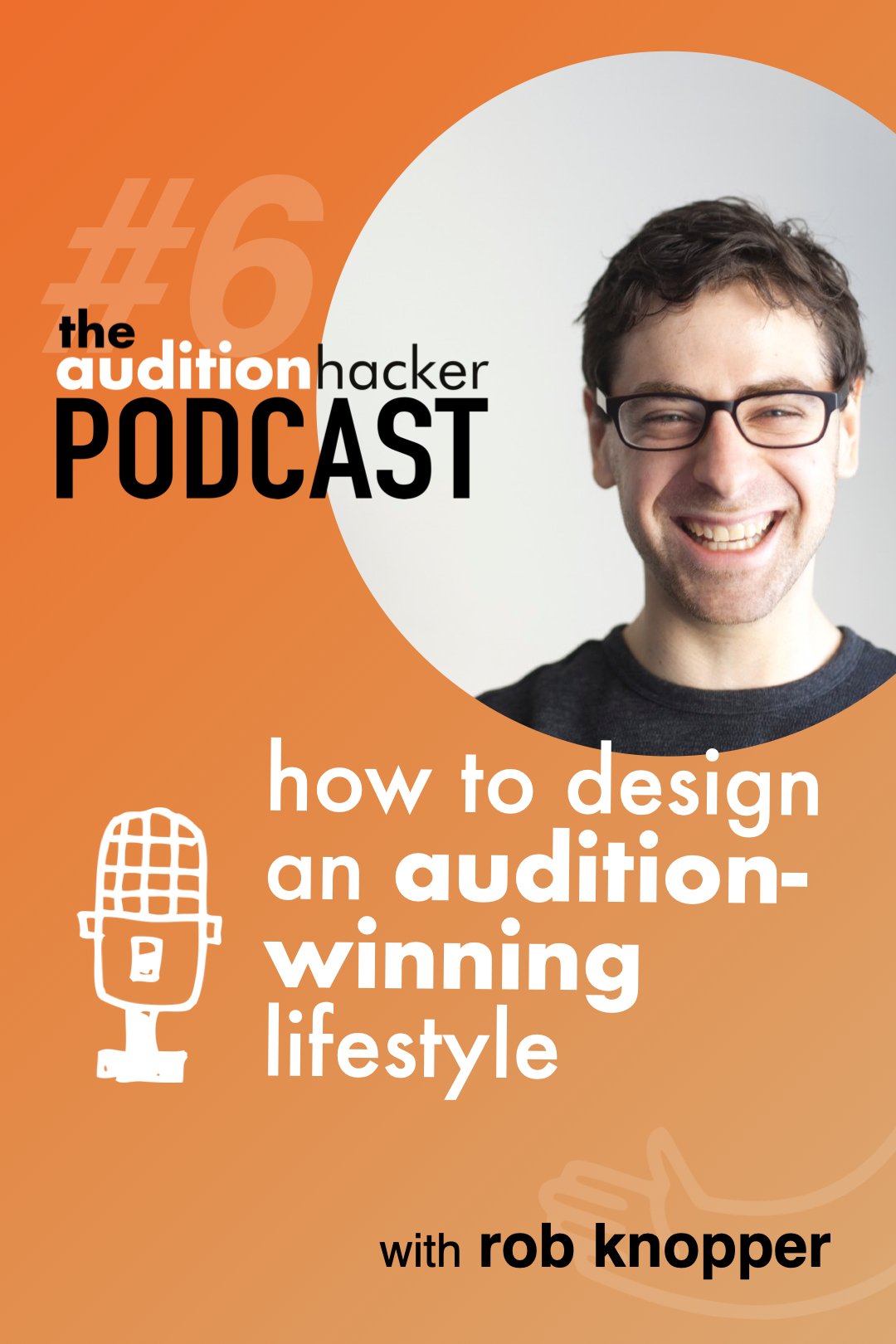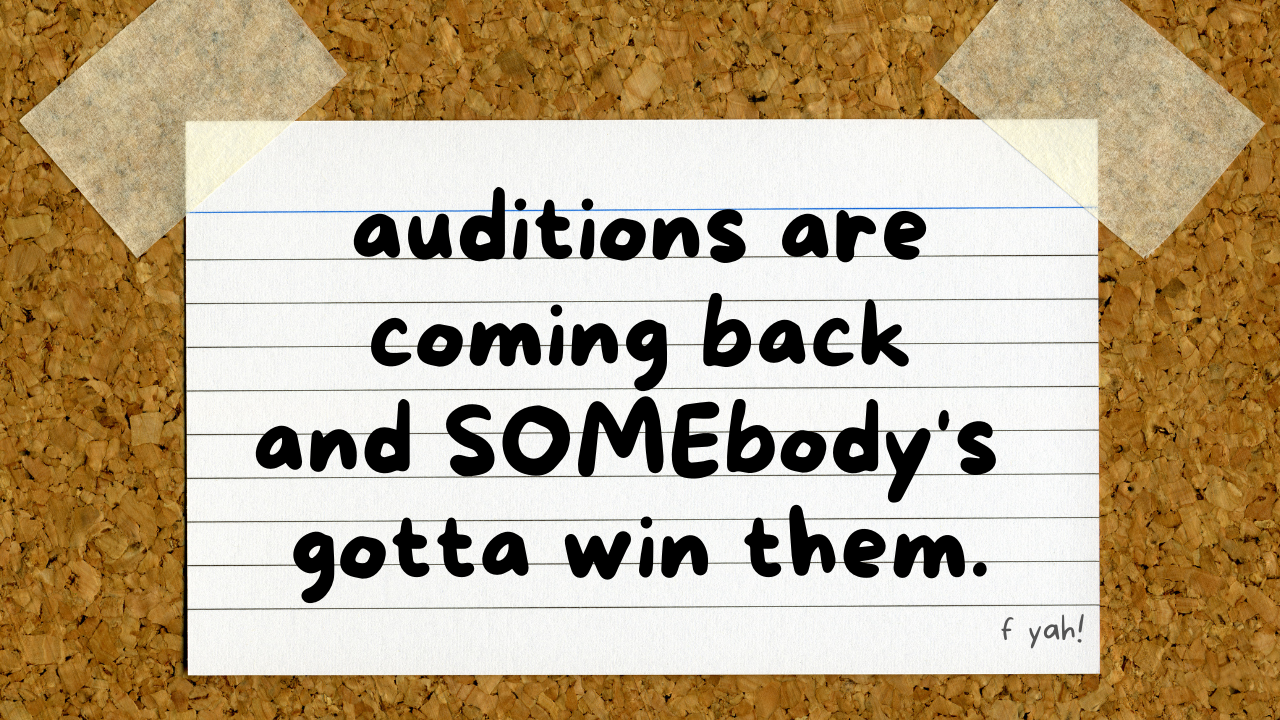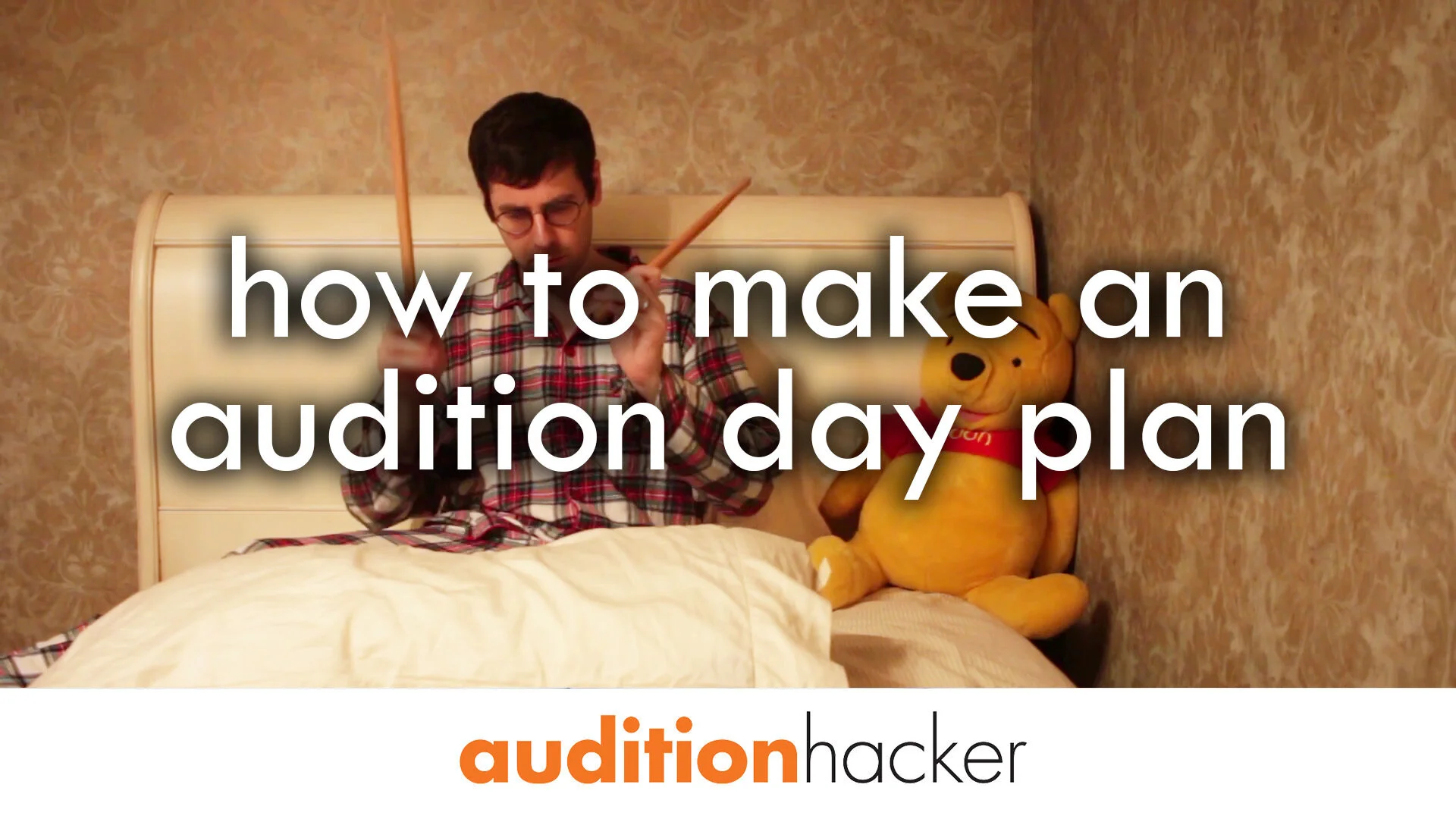remember back in april? when the election was all about obamacare vs. universal healthcare and how to make college more affordable and not donald trump transforming into bill cosby? me neither.
anyway, ever since then, i've been asking myself this (extremely important) question: if hillary and bernie faced each other in an orchestra audition, who would win?
auditioning is the same as an election. sort of.
they both have candidates, voters, and a narrowing-down-to-one process.
they're so similar. and that's why we can learn something about auditions by picking apart this very public spectacle of an election.
so. we know that hillary won the democratic nomination by a pretty decisive margin. she pretty much blew bernie out of the water, actually, earning 55% of the popular vote to his 43%, and a greater margin in the delegate count. (check out my source here)
in a hypothetical world where hillary and bernie are both auditioning for an orchestra...
who wins the job?
which candidate's process leads them to winning more votes?
and most importantly, how can this HELP YOU PREPARE FOR AUDITIONS more effectively?
disclaimer: read at your own risk
if you're all "ROB YOU KNOW THE ELECTION WAS RIGGED" or "hillary broke the law," just remember: i don't care. this article isn't really about their positions or the specifics of the campaign. it's a thought experiment.
i'm not really an expert on either of these two candidates. i'm not a political scientist and i'm not a journalist. i'm just a guy who listened to a few hundred hours of political podcasts this summer and who thinks about auditions all the time.
their "audition" is basically a series of speeches.
their public speeches are the closest thing we have to an audition performance. the voters watch a candidate speak and use that experience to decide who to vote for. and in that way, hillary and bernie are total opposites.
when hillary speaks, it kind of sounds like legalese. she can occasionally string together some sentences that showcase her true personality, but in most cases, she comes across as sounding careful. like she's walking a fine line between pissing off one group of people here and treading lightly on another group of people there. she even once said: "i am not a natural politician like bill clinton or barack obama." bill and barack are ridiculously amazing orators who, like a netflix documentary, can leave you feeling inspired and emotional.
bernie has the speaking gift. he crafts his speeches like an artist, appealing to your basic moral compass and worldview. he uses facts and figures to punch at your emotions and draws comparisons that can cause a room to explode in applause or to sit in hushed silence.
the style of their speeches in important, certainly. the content is probably even more important. and the way each candidate chose their platform and the content of their speeches is based on their personality, their process, and their history.
bernie, the politician
bernie sort of has a utopia that he envisions for us. he's thought it through and through and it seems awesome to him, and now it's his job to (1) convince us that utopia is gonna be great and (2) shape the world accordingly.
he's figured out that, for him, all these things are truths and should be a part of society. public school should be free. health insurance should be free. rich people should pay a lot in taxes. and other stuff. follow him down the rabbit hole with any of these and he can show you the changes he would make to execute each one. he has a whole page on his website called "how bernie pays for his proposals."
it's almost like he grew up during the 60's, became a little bit of a hippie, embodied some of the progressive ideals that became popular during that time, and just decided to never change his mind. he even recorded a folk album in the 80's.
hillary, the politician
i see her as being almost totally opposite from bernie in terms of approach. i'm not saying that she doesn't have a utopia in mind or specific policies she wants to pursue, but she definitely has an approach based on listening. she wants to understand where/who her constituents are and what changes they're looking for.
there's an awesome article that explains this by ezra klein at VOX, but here's the gist:
"modern presidential campaigns are built to reward people who are really, really good at talking." but hillary isn't good at that. she often receives critique claiming that she sounds like she's reciting a script.
instead, hillary listens. in 2000, she toured around new york when she was campaigning for senate and had these "listening sessions." she wanted to figure out what was bothering new yorkers so that she could prepare for her job to make effective policy tweaks when she became a senator. she did the same thing for her 2016 presidential campaign.
everyone thought they were ridiculous, but she was actually listening and learning. here was her process:
during her listening tour, she would write down important points, thoughts, and observations on little slips of paper. she would collect those into a briefcase along with newspaper clippings, position papers, and other random scraps of paper.
she would schedule "card-table time" with her staff, during which they would block out 2 hours, lay our her suitcases full of paper, and get to work.
they'd organize all the papers by topic or issue, like things related to the environment, military family issues, etc.
they'd read through and use those pieces of information, collected directly from real voters who had expressed them, to make policy proposals. or write position papers. the direct commentary from the voters led directly to real life legislation.
interesting, right? she's like the ultimate mock auditioner, trying to get comments from everyone possible and tweaking her platform in order to make changes that she thinks would help more people.
bernie, the musician
let's cross over into this strange alternate dimension where both bernie and hillary are classical musicians auditioning for orchestras.
because bernie has an unflinching utopia worldview, i think he'd be a really unique classical musician. he'd be that guy in orchestra who plays everything really soloistically and you're like, "woah, awesome." sometimes his rhythm would be so stylized and "in his vision" that he'd place a downbeat super late but it would sound amazing. he's make extreme decisions about phrasing that were deeply expressive and even soulful.
he'd be like lynn harrell in the cello section of the cleveland orchestra: so good and soloistic that he made his way up to principal and had to get out of the orchestra so he could start being a soloist.
you'd be totally in love with bernie and his playing. unless you weren't.
if you happened to disagree with his style or decisions, he could get annoying quickly. he'd be that guy who insisted on bringing out some unwritten accents or playing fff in a mf zone just because. you'd always end up justifying it and calming yourself down by saying, "oh, that's just bernie being bernie. classic sanders."
politically, i sort of see bernie sanders as the senator who walks into the chamber, doesn't sit with anyone (he's an independent in the senate, not a member of the republican or democratic party), tries to talk a lot and everyone rolls their eyes. apparently, he was in the senate for 9 years and sponsored only 1 bill that passed. compare that to hillary, who sponsored 10 bills in a similar amount of time.
hillary, the musician
if hillary were in the orchestra, she'd be strategic. she'd learn all the rules of the orchestra. she's learn how late the orchestra plays behind the conductor's beat. she's learn how they interpret note lengths for composers from different time periods. she's learn what their tendencies were for pitch and rhythm.
if you had a duet with her during a section of a piece, you could count on her always coming in at the right time. she'd study the orchestration in advance and know that she can help the chord by playing her note lower or higher depending on her note's function.
if she played a solo recital, she might not sound exactly like an expressive, in-the-moment performer. she'd be calculated, and probably a little boring.
in an audition, she'd be uncuttable. she'd sound like a "safe" choice.
want a head start on audition preparation?
here's my 5-step guide to constructing your preparation process and optimizing it for maximum results.
so, hillary would dot the i's and cross the t's. bernie would be a soloist. but who would win the audition?
remember. i'm not talking about which is better and which is worse in terms of direction of classical music. i'm not talking about which should win an audition. my premise is that, given the structure of orchestral auditions, which style would do well at the audition itself?
the audition committee is a complex beast. it's a group of people, just like voters in an election, with vastly different viewpoints and priorities.
there will definitely be some people who listen to bernie's soloistic playing and love it, and know in their hearts that he is the best player for the job. his particular musical stylings would line up with their preferences. they might have always wished that the end of particular phrase should have a musical rubato, and finally someone is willing to commit to that and freaking do it!
but there will be some people who listen to his playing and feel that it's too off-the-beaten-path. they might not like one aspect of his playing - say, his stylization of rhythm - and that might be the deal breaker. or they might appreciate his playing but recognize that it won't mesh with the day-to-day music-making of the orchestra.
hillary's uncuttable attention to detail and pursuit of the preferences of the average voter wins more votes than bernie. that's my theory, at least.
winner: hillary.
why, though?
the audition committee represents the current state of preference in classical music, based on the individual jurors. it rewards high vote-getters rather than exceptionally unique but potentially flawed players.
think about tempo, for example. if you're a "careful" player, you're probably going to find the dead-center average tempo from 10 recordings and play it there. nobody will be able to cut you for that, but you're not really making a statement. if you're a unique soloist, you'll choose a tempo that makes a statement and is on the extreme side. you're going to win some people over a lot, but that's also going to raise some red flags for other members of the committee.
if you were to take all the members of the committee and average out their preferences, you'd get a single musical mind that embodies the current state of classical music. think about it: on one extreme, someone might like a ton of tempo pushing and pulling. on the other, someone might hate it.
what's the average amount of pushing and pulling that accepted and preferred by the current crop of orchestral musicians, right now? well, it's somewhere in the middle. it's not too much, and it's not too little. and you have to figure it out by playing a lot of mock auditions and learning from a cross section of peers and mentors.
hillary has her finger on the pulse
of the average voter.
hillary's listening sessions were basically the ultimate mock audition process. she didn't push her personal agenda on the country as much as find out what the country was already asking for and built her platform around that. that's a huge overgeneralization, of course, but it's a big difference between her and bernie.
think about her perspective on gay marriage. it's changed over the years. in 2000, she said that "a marriage is as a marriage has always been, between a man and a woman."
in 2013, she said that "i support marriage for lesbian and gay couples." (check out my source here)
she changed her mind. maybe she thought it through again and again and literally has a different heartfelt opinion on the matter. but that's almost not the point. american culture has changed, and position of the average american has changed with it. it's a more accepted and preferred position (for this writer, thank god) to support gay marriage.
literally, the american public's stance on gay marriage has shifted from disapproval to approval. that changeover happened in 2011, according to this chart.
and hillary, as a candidate, has decided to represent the views of the majority of americans, even when that adjusts over time. or at least closer to it than bernie. she wants to make changes that help the most people, based on what they actually want. so she listens, figures out what they're interested in, and puts that on the agenda.
so how can you be the hillary of auditions?
it's all about your process. as bernie showed us, you don't win by insisting on an extreme worldview. you win by listening, and that means plenty of mock auditions.
like it or not, the audition is all about trying to find a single way that pleases all the jurors. you're trying to be the most moderate, center candidate. you might luck out and win a job by playing in a unique, out-in-left-field way, but you're more than likely going to scare people. you're trying to be the player that represents the closest version of what each juror thinks is the "utopia" of music: the ultimate version of the excerpts. that means figuring out what the current state of musicians do in terms of excerpts, and then doing that the best.
don't convince the orchestra.
represent the orchestra.
if you think of being from another country looking in, wouldn't you assume that the leader of the country would sort of try their best to represent the majority of the people? that's a moderate, centrist approach to politics.
sure, as you read this, you might be complaining that auditions promote safe playing. it rewards people who play cleanly, don't take too many chances, and aren't adventurous. i totally see that. but, this post isn't commenting on whether that's how it should be or not. you're trying to understand the system and work it, and that means getting the most votes. period.
basically, have other people choose
your interpretations for you.
i had this video a couple weeks ago called "how to choose mallets for the auditions." one of my colleagues came up to me at intermission and said, "i watched your video. fascinating! it's totally different from the way i make decisions leading up to the audition. you actually let other people choose your mallets for you?"
and i said something like, "yeah! i figure, i'm not playing to impress myself. i'm playing to impress the audition committee. i want to choose mallets that impress people in a first-impression scenario and make them want to vote for me. that means learning their preferences, not just blindly using my own."
here ya go: a 4-step process.
here's a process you can put in place to build a hillary-style mock audition process.
play for a lot of different people in mock auditions and collect first-reaction comments from them.
organize those comments and prioritize them. remember: the most important problems are the ones that get commented upon the most, not the things that bother you the most. your specific musical personality is going to guide you in one direction, but these comments might guide you in another, more effective direction.
during your practice, make tweaks and work on solving the problems that get commented the most. that's going to bring you closer to pleasing that average committee member.
repeat. go back to step 1 and continue your journey towards earning the most votes.
so, is hillary a better politician? and a better musician?
i don't really see either one as better than the other, intrinsically. it's their process that makes hillary more likely to win and bernie more likely to be a soloist.
bernie is far-left, and hillary is closer to the center. she's not dead-center, but she's closer than bernie. (another cool source for you to check out)
bernie may be better at talking, but hillary tends to say things that are more acceptable to a majority of americans.
are auditions the best way to choose musicians
for orchestras?
i'm not sure. can you think of another solution? let me know in the comments!
whatever the answer to this question, we have a current system. it's your job to figure it out and learn how to work it so that you can get a job.
and once you win the job and get tenure? now you can play however you want. you'll be invited to sit in auditions and literally vote for whatever you think is the most beautiful, not the "safest." you just have to get there first.






















it's episode #8 of the auditionhacker podcast, and i'll go over my best methods for getting better feedback.